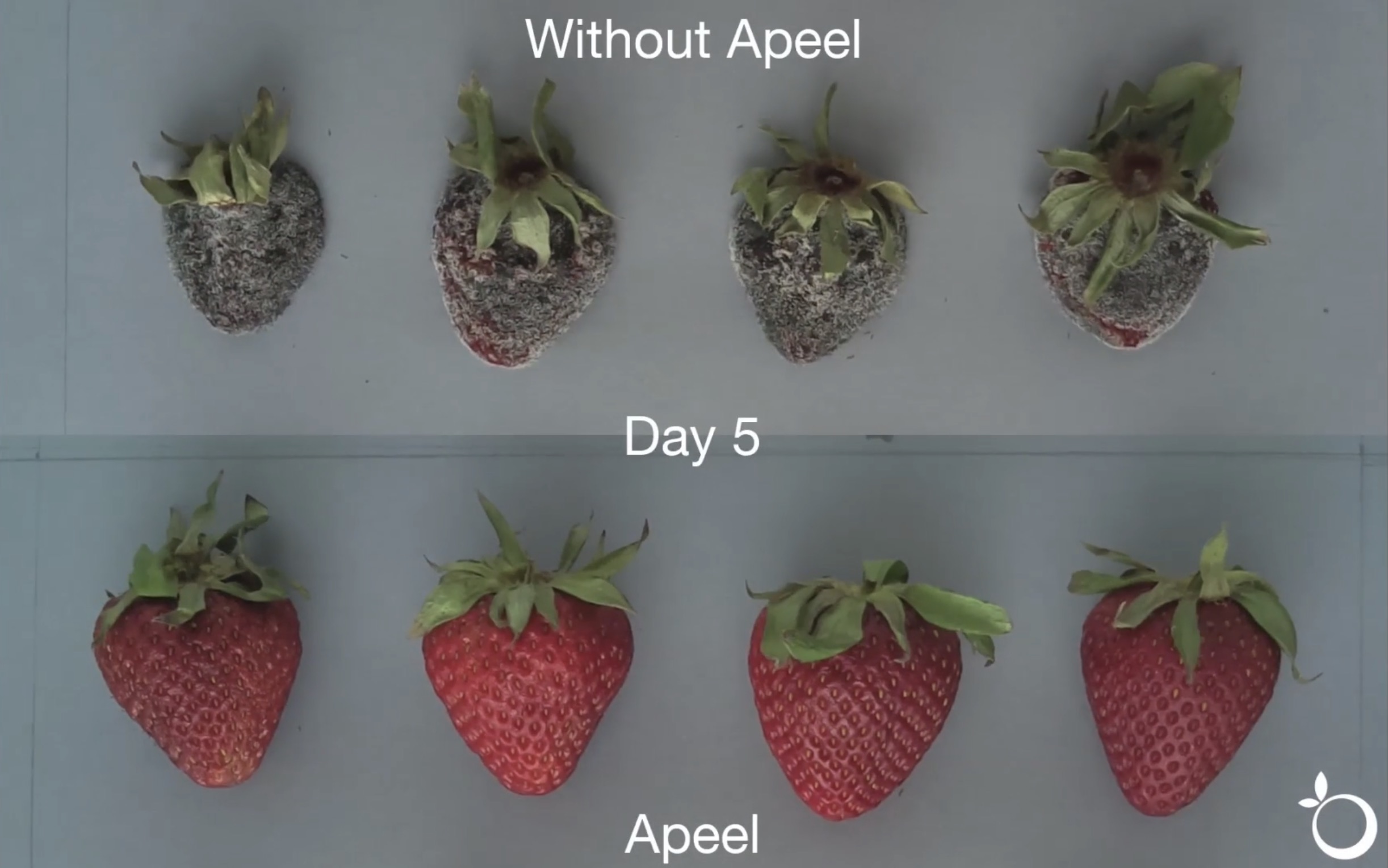- Inspiring People -
- 3mins -
- 563 views
This brilliant plastic-free, plant-derived second “peel” doubles the shelf life of fresh produce
Apeel forms a thin “peel” of edible plant material on the surface of the fruit that slows down both water loss and oxidation—the two main factors that cause spoilage—thereby replacing plastic, reducing reliance on refrigeration and fighting food waste.
Edible plant-derived spray-on “peel” slows down spoilage
Apeel Sciences innovative plant-derived product that reportedly slows down the rate of water loss and oxidation in perishable foods, could be a solution to help fight the global food waste crisis by utilising “nature’s tools” to prevent waste in the first place, and be a sustainable approach to the world’s growing food demands. By adding a little extra “peel” to the surface of fresh produce, Apeel Sciences say they naturally reinforce the plant’s own peel and slow the rate of water loss and oxidation, the primary causes of food spoilage. Produce sprayed with Apeel stays fresh two to three times longer, extending quality, flavour and nutrition for consumers.

This little extra peel creates an optimal microclimate inside fruits & vegetables
Apeel is an innovative plant-derived solution that doubles to triples the shelf life of many types of fresh produce — reducing reliance on refrigeration, plastic packaging, and controlled atmosphere throughout the supply chain.
Made of materials already found in every bite of fruit, Apeel creates an exceptionally thin, edible “peel” on the outside of produce, creating an optimal microclimate inside fruits and vegetables that slows the rate of water loss and oxidation — the primary causes of spoilage. This is great news not only for end consumers.
For suppliers and retailers, the makers of Apeel say it’s the only postharvest solution that creates this optimal microclimate inside the produce, maintaining quality, extending shelf life and transportability, with reduced reliance on refrigeration and controlled atmosphere.
Apeel Sciences say this approach helps fight the global food waste crisis by using nature’s own tools to extend the freshness of produce, prevent waste and promote more sustainable practices.
Apeel is FDA GRAS, approved for USDA Certified Organic and conventional produce, and in 2019 it gained regulatory approval by the European Commission.
Source: PackagingEurope

This technology also has the ability to reduce single-use plastic waste in the produce industry
Apeel Sciences was founded in 2012 with a grant from the Bill & Melinda Gates Foundation to develop a product to reduce post-harvest food loss in developing countries.
Today, Apeel Sciences has developed products for multiple USDA Organic Certified and conventional produce categories, and the company works with partners ranging from smallholder farmers and local organic growers to the world’s largest food brands to make better quality fruits and vegetables available for all.
Apeel is made of plant-derived materials — lipids and glycerolipids — that exist in the peels, seeds, and pulp of all the fruits and vegetables we already eat. When creating Apeel, the makers specifically target these materials.
Key factors that determine the shelf life of produce, such as water loss and ripening rates, are governed by their surface properties, including native wax composition, wax crystal density and size, roughness, and porosity. Apeel consider all of these factors when they optimise a formulation for a particular category of produce, where molecularly, they adjust the combination of lipids in the formulation to be best suited to a given produce surface to maintain shelf-life.
In addition to food waste reduction, Apeel’s technology has the ability to reduce single-use plastic waste in the produce industry. In autumn 2019, Apeel announced a partnership with world-renowned supplier Houweling’s Group, providing them access to Apeel’s plant-derived technology to replace the single-use plastic wraps on its English cucumbers while still maintaining the vegetable’s shelf life. This partnership is expected to reduce plastic waste from reaching landfill by over 60,000lbs/27,215kg per year.
Below: time-lapse of different fruit and vegetables with/without a coating of Apeel
Source : PackagingEurope

